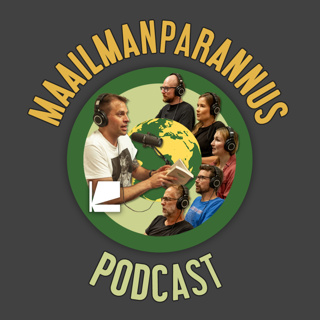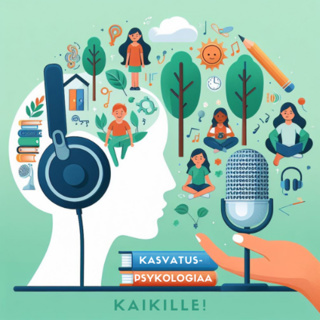
Does warm weather mean more rats in UK towns and cities?
Summer heatwaves and missed bin collections have created panic in the press that rat numbers in the UK are increasing. We ask Steve Belmain, Professor of Ecology at the Natural Resources Institute at the University of Greenwich for the science. This summer Wales became the first country in the UK to ban plastic in wet wipes, with the other nations pledging they will do the same. Over the past few weeks there’s been work to remove a giant mound of them, known as ‘Wet Wipe Island’ on the Thames in west London. Marnie Chesterton has been to find out how they got there and what damage they could be doing to the river’s ecosystem.Professor Sadiah Quereshi, Chair in Modern British History at the University of Manchester explains why we should see the extinction of species as a modern, and often political phenomenon. Her book Vanished: An Unnatural History of Extinction is the second book we’re featuring from the shortlist for the 2025 Royal Society Trivedi Science Book Prize.And Lizzie Gibney, senior physics reporter at Nature brings us a round up of the news causing a stir in science circles this week.Presenter: Marnie Chesterton Producers: Ella Hubber, Jonathan Blackwell and Clare Salisbury Editor: Ilan Goodman Production Co-ordinator: Jana Bennett-Holesworth
25 Syys 32min

Could solar panels in space be the energy source of the future?
As new research looks at the financial and environmental case for solar panels in space, we explore how likely the technology could be to power our future energy needs back on Earth. Marnie Chesterton hears from the author of a new study into the topic, Dr Wei He from King’s College London, and is joined by Professor Henry Snaith from Oxford University to look at the future of solar panel technology.We also hear from conservation scientist Adam Hart about his views on whether allowing trophy hunting could actually help to protect threatened species in the long term.Marnie also speaks to the author of one of the books shortlisted for the annual Royal Society Trivedi Book Prize, Simon Parkin. His book, The Forbidden Garden of Leningrad, explores the story of the botanists working at the world’s first seed bank during World War Two, and the extraordinary lengths they went to to protect the specimens they were keeping. We also hear from one of the judges of the awards, the crime writer Val McDermid.And science journalist Caroline Steel joins us to highlights the week’s most fascinating new pieces of research.
18 Syys 28min

What will we be wearing in the future?
What are you wearing today? What processes, chemical and otherwise, have gone into creating the garments in your wardrobe? And how might they be improved, honed, transformed in the future?Professor of Materials & Society at UCL, Mark Miodownik, Dr Jane Wood, Lecturer at the University of Manchester and expert in textile technology, and materials scientist, writer and presenter Dr Anna Ploszajaki join Marnie Chesterton to take a closer look at possibly the most familiar materials we own, our clothes.Presenter: Marnie Chesterton Producers: Clare Salisbury and Lyndon Jones Editor: Martin Smith Production Co-ordinator: Jana Bennett-Holesworth
11 Syys 28min

What’s the evidence for vaccines?
US Health Secretary Robert F Kennedy Jr announced plans this week to cancel $500 million dollars of funding for mRNA vaccine development. The research was focusing on trying to counter viruses that cause diseases such as the flu and Covid-19.Marnie Chesterton is joined by Professor Anne Willis, Director of the MRC Toxicology Unit at the University of Cambridge, to explore the claims made by The US Department of Health and Human Services that the technology “poses more risks than benefits”, and to look at the evidence behind the vaccines.We also visit the most powerful computer the UK has ever seen at the University of Bristol, and explore how the Isambard-AI supercomputer is being used to carry out groundbreaking new research.After last week’s call for our listeners to pay homage to the satirical songwriter and mathematician Tom Lehrer, who died at the age of 97, we hear a range of your brilliant musical tributes.And Marnie is joined by journalist Caroline Steel to explore the week’s fascinating scientific discoveries.Presenter: Marnie Chesterton Producers: Clare Salisbury, Dan Welsh, Jonathan Blackwell Editor: Martin Smith Production Co-ordinator: Jana Bennett-Holesworth
4 Syys 28min

Why wasn’t the Russia mega earthquake as damaging as previous ones?
A massive 8.8 magnitude mega earthquake off Russia's east coast sent tsunami waves into Japan, Hawaii and the US west coast this week. While more than two million people across the Pacific were ordered to evacuate, there were no immediate reports of any fatalities. After recent devastating tsunamis like the ones that hit Fukushima in 2011 and the Boxing Day disaster of 2004, we speak to Environmental Seismology lecturer at University College London, Dr Stephen Hicks, to ask why this quake didn’t cause anywhere near the same amount of harm.After the Lionesses successfully defended their UEFA European Women’s Championship, Marnie Chesterton is joined by Professor of Sports Engineering at Sheffield Hallam University, Steve Haake, to looks at the role data analysis and Artificial Intelligence is now playing in football and other sports.We hear about fascinating new research from primatologist Professor Cat Hobaiter at the University of St Andrews into what we can learn about our evolution by studying how apes eat alcoholic fermented fruit.And Marnie is joined by technology broadcaster Gareth Mitchell to hear about the week’s brand new scientific discovery news, and for a musical homage to the satirical songwriter and mathematician Tom Lehrer, who died this week at the age of 97.Presenter: Marnie Chesterton Producers: Clare Salisbury, Dan Welsh, Jonathan Blackwell Editor: Martin Smith Production Co-ordinator: Jana Bennett-Holesworth
28 Elo 28min

The surprising culture of the animal kingdom
We discuss the incredible science of the animal kingdom, focusing on the latest fascinating research into animal culture, society and communication.Victoria Gill is joined by a panel of experts in front of a live audience at the Hay Festival to hear about their research all over the world into animal behaviour.Taking part are:Jemima Scrase, who is currently finishing her PhD at the University of Sussex investigating matriarchal leadership in African elephants, and has spent most of the last few years out in the field in Kenya, working in collaboration with the charity Save the Elephants.Dr Manon Schweinfurth, a Senior Lecturer in the School of Psychology and Neuroscience at the University of St Andrews, who runs a lab investigating the evolutionary and psychological origins of cooperation.And Andy Radford, a Professor of Behavioural Ecology at the University of Bristol, who studies social behaviour and communication, and particularly how vocalisations are used to mediate cooperation and conflict.
21 Elo 27min

How can we keep our homes cool in a changing climate?
After three UK heatwaves, we turn to science for solutions that could keep us safer, and cooler, in our homes. Professor of Zero Carbon Design at the University of Bath, David Coley, explains how our houses could be better designed to handle climate change.This week the UK Space Conference has come to Manchester. Victoria Gill is joined by Tim O’Brien, Professor of Astrophysics at the University of Manchester, for the latest space science news.We also hear from technology journalist Gareth Mitchell on a curious headache for the tech companies rolling out driverless taxis, in the form of plastic bags. And we speak to a group of high school students who have been spending their lunch breaks extracting and analysing daffodil DNA.Presenter: Victoria Gill Producers: Dan Welsh, Jonathan Blackwell, Clare Salisbury Editor: Martin Smith Production Co-ordinator: Jana Bennett-Holesworth
14 Elo 28min

How can we reduce the impact of plastic on the environment?
Next month world leaders will again gather to focus on dealing with our global plastic problem. So this week we’re looking for solutions. Marnie Chesterton hears from Professor of Sustainable Chemical Engineering at the University of Sheffield, Rachael Rothman on how we can engineer safer, more environmentally friendly plastics. And at the other end of the plastic spectrum, she hears about the clean up operation after the world’s biggest ocean spill of nurdles – tiny plastic pellets which are used to make plastic products. Investigative environmental journalist Leana Hosea brings the results of her investigation into the clean up after the X-Press Pearl container ship caught fire and sank 4 years ago.Mark Miodownik, University College London Professor of Materials & Society returns to the studio with the results of a citizen science project to try to get more data on potty training. It aims to encourage parents to get toddlers out of nappies earlier.And Penny Sarchet, managing editor at New Scientist brings her pick of this week’s newest scientific discoveries.Presenter: Marnie Chesterton Producers: Clare Salisbury and Dan Welsh Editor: Martin Smith Production Co-ordinator: Jana Bennett-Holesworth
7 Elo 28min



















